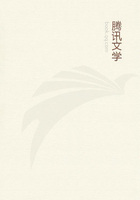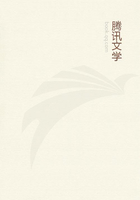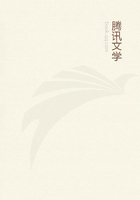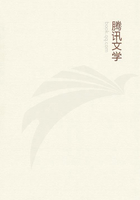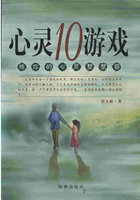Comparison of Vedic and savage myths--The metaphysical Vedic account of the beginning of things--Opposite and savage fable of world made out of fragments of a man--Discussion of this hymn--Absurdities of Brahmanas--Prajapati, a Vedic Unkulunkulu or Qat--Evolutionary myths--Marriage of heaven and earth--Myths of Puranas, their savage parallels--Most savage myths are repeated in Brahmanas.
In discussing the savage myths of the origin of the world and of man, we observed that they were as inconsistent as they were fanciful. Among the fancies embodied in the myths was noted the theory that the world, or various parts of it, had been formed out of the body of some huge non-natural being, a god, or giant, or a member of some ancient mysterious race. We also noted the myths of the original union of heaven and earth, and their violent separation as displayed in the tales of Greeks and Maoris, to which may be added the Acagchemem nation in California. Another feature of savage cosmogonies, illustrated especially in some early Slavonic myths, in Australian legends, and in the faith of the American races, was the creation of the world, or the recovery of a drowned world by animals, as the raven, the dove and the coyote.
The hatching of all things out of an egg was another rude conception, chiefly noted among the Finns. The Indian form occurs in the Satapatha Brahmana. The preservation of the human race in the Deluge, or the creation of the race after the Deluge, was yet another detail of savage mythology; and for many of these fancies we seemed to find a satisfactory origin in the exceedingly credulous and confused state of savage philosophy and savage imagination.
Bancroft, v. 162.
Sacred Books of the East, i. 216.
The question now to be asked is, do the traditions of the Aryans of India supply us with myths so closely resembling the myths of Nootkas, Maoris and Australians that we may provisionally explain them as stories originally due to the invention of savages? This question may be answered in the affirmative. The Vedas, the Epics and the Puranas contain a large store of various cosmogonic traditions as inconsistent as the parallel myths of savages. We have an Aryan Ilmarinen, Tvashtri, who, like the Finnish smith, forged "the iron vault of hollow heaven" and the ball of earth.
Again, the earth is said to have sprung, as in some Mangaian fables, "from a being called Uttanapad". Again, Brahmanaspati, "blew the gods forth like a blacksmith," and the gods had a hand in the making of things. In contrast with these childish pieces of anthropomorphism, we have the famous and sublime speculations of an often-quoted hymn. It is thus that the poet dreams of the days before being and non-being began:-- Muir, v. 354.
Rig-Veda, x. 72, 4.
Ibid., x. 126.
"There was then neither non-entity nor entity; there was no atmosphere nor sky above. What enveloped ? . . . Was it water, the profound abyss? Death was not then, nor immortality:
there was no distinction of day or night. That One breathed calmly, self-supported; then was nothing different from it, or above it.
In the beginning darkness existed, enveloped in darkness. All this was undistinguishable water. That One which lay void and wrapped in nothingness was developed by the power of fervour. Desire first arose in It, which was the primal germ of mind sages, searching with their intellect, have discovered to be the bond which connects entity with non-entity. The ray which stretched across these , was it below or was it above?
There were there impregnating powers and mighty forces, a self-supporting principle beneath and energy aloft. Who knows? who here can declare whence has sprung, whence this creation? The gods are subsequent to the development of this ; who then knows whence it arose? From what this creation arose, and whether made it or not, he who in the highest heaven is its ruler, he verily knows, or he does not know."
Muir, Sanskrit Texts, 2nd edit., v. 357.
Here there is a Vedic hymn of the origin of things, from a book, it is true, supposed to be late, which is almost, if not absolutely, free from mythological ideas. The "self-supporting principle beneath and energy aloft" may refer, as Dr. Muir suggests, to the father, heaven above, and the mother, earth beneath. The "bond between entity and non-entity" is sought in a favourite idea of the Indian philosophers, that of tapas or "fervour". The other speculations remind us, though they are much more restrained and temperate in character, of the metaphysical chants of the New Zealand priests, of the Zunis, of Popol Vuh, and so on. These belong to very early culture.
What is the relative age of this hymn? If it could be proved to be the oldest in the Veda, it would demonstrate no more than this, that in time exceedingly remote the Aryans of India possessed a philosopher, perhaps a school of philosophers, who applied the minds to abstract speculations on the origin of things. It could not prove that mythological speculations had not preceded the attempts of a purer philosophy. But the date cannot be ascertained.
Mr. Max Muller cannot go farther than the suggestion that the hymn is an expression of the perennis quaedam philosophia of Leibnitz.
We are also warned that a hymn is not necessarily modern because it is philosophical. Certainly that is true; the Zunis, Maoris, and Mangaians exhibit amazing powers of abstract thought. We are not concerned to show that this hymn is late; but it seems almost superfluous to remark that ideas like those which it contains can scarcely be accepted as expressing man's earliest theory of the origin of all things. We turn from such ideas to those which the Aryans of India have in common with black men and red men, with far-off Finns and Scandinavians, Chaldaeans, Haidahs, Cherokees, Murri and Maori, Mangaians and Egyptians.
History of Sanskrit Literature, p. 568.

